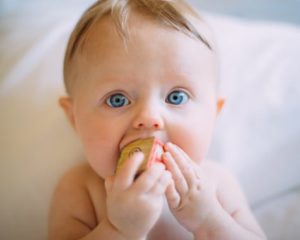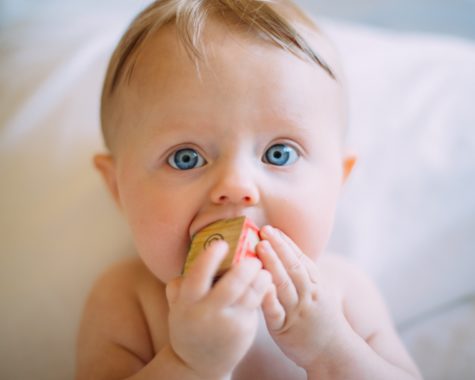ST. LOUIS — Infants may be years from taking high school statistics, but that doesn’t stop them from calculating the ramifications of your every move, a new study finds.
Researchers at Washington University in St. Louis, Mo., conducted two related experiments with a group of 60 healthy infants between 7 and 9 months, evenly split between boys and girls, to help determine how— and whether — young children could accurately determine the preferences of adults.

“Even before they can talk, babies are keeping close track of what’s going on in front of them and looking for patterns of activity that may suggest preferences,” explains study co-author Lori Markson, an associate professor of psychological and brain sciences at the school, in a news release. “Make the same choice three or four times in a row, and babies as young as 8 months come to view that consistent behavior as a preference.”
The first experiment had infants sit on their mother’s lap as a researcher selected one of two stuffed animals — a duck or a dog — from a nearby stage.
An initial trial saw the researcher select the same duck four times in a row, which was intended to clearly define her “preference.”
Subsequent trials mixed things up by either having the same female researcher pick the duck three times in a row before choosing the dog, or by having the first researcher choose the duck three times before her colleague selected the dog.
Following each trial, the researchers stopped to observe a given infant’s facial reactions, before returning to make a fifth selection. The researchers hoped to measure each baby’s “looking time” — a reliable indicator of how they perceive situations and events — during the trials.
They found that babies spent 50 percent more time staring at selections that deviated from what they could have expected.
“Consistency seems to be an important factor for infants in helping them sort out what’s happening in the world around them,” says Markson.
A second experiment involving the same infants had the researchers ask the babies to give them one of the two toys available during the previous experiment.

Interestingly, the babies showed a clear preference for handing over the duck, confirming their earlier findings.
Previous research had led to the belief that children don’t develop the ability to understand a perspective outside of their own until age 4. But this latest experiment showed that looking time indicates that infants are quite observant when it comes to the behavior of others.
“Our study is the first one to show how inconsistent choices affect infants’ understanding about others’ preferences,” says Markson. “Based on these findings, we hope to further explore how ratios of consistent/inconsistent choices matter to infants and eventually compare infants’ understanding to adults’ knowledge about others’ choices.”
This ability to predict one’s thoughts, beliefs, or perceptions can be found in infants as young as eight months, she adds.
Markson et al. published their findings in the journal Infancy.

How old were the babies they were “asking” to hand them a stuffed animal??? If they were doing this with a 7 or 8 month year old, somebody probably took them to the looney bin.